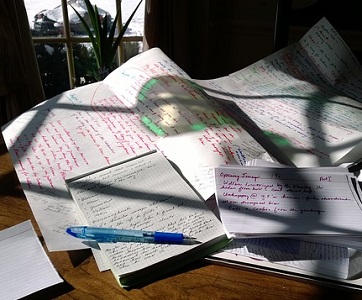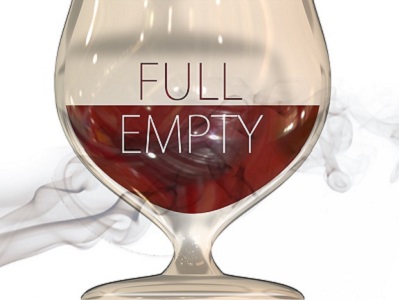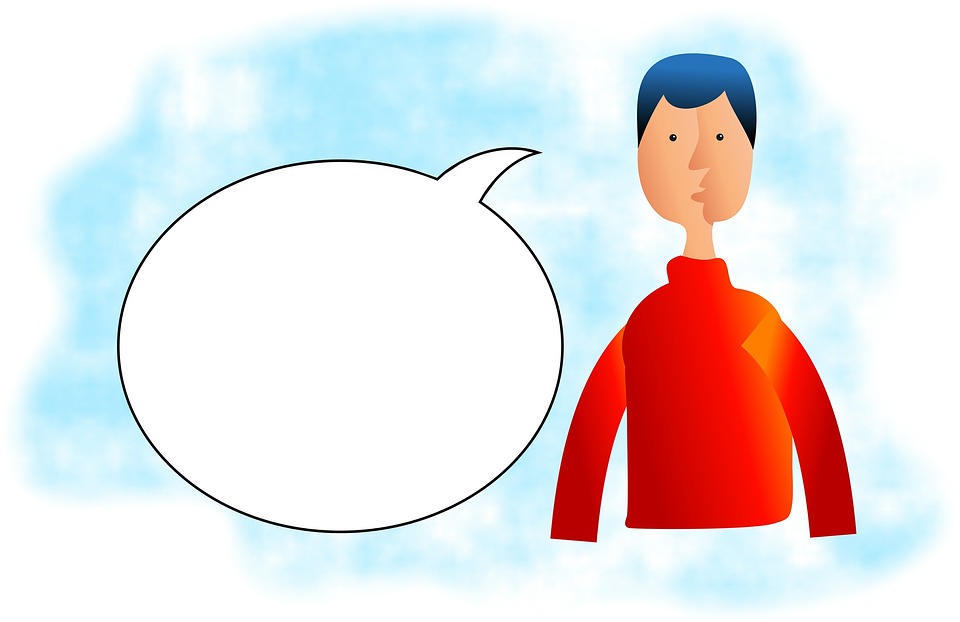The Mad, Mad, World of a Delusional Poet
by Bob Callaci (rcallaci)
The A B C’s of wordplay, rhyme and imagery
I’m somewhat of a maverick and simple minded poet, so before you read on, know that I don’t follow all the rules and tend to the beat and sounds of my own bongos and drums. I’m not here to give a scholarly discourse on the nature of poetry. I’ll leave that to the more erudite of poets. I’m also not going to go over the merits of free verse versus form poetry. I’ll leave that for another time if the forces that be; allow me to. My main focus in this article is to show the basic fundamentals on what it takes for a poem to sound and read like a poem.
Imagery, rhyme and wordplay are the building blocks of poetry. Without fully understanding and utilizing these ingredients properly you run the risk of writing a poem with no admirers but yourself.
Many novice poets and even more seasoned ones don’t fully understand the meaning of the words they put down on real or virtual paper. Without fully understanding a words full meaning, meaningful wordplay or eye popping imagery will elude you. You need to hone these skills, by reading extensively, making the dictionary and thesaurus your friend, and by doing poetic exercises.
The two styles that I will highlight below are what I call skill building forms. These are easy to do and are excellent tools to add to your arsenal of word, rhyme, and imagery building exercises.
Exercise #1
The Acrostic poem is a fun form that hones your skills in word building and meanings. This is a very simple form to do. You can experiment with the Acrostic many different ways but in my acrostic below I use the form to explore the full meaning of a word.
INTOLERANCE
Ignorance is a prerequisite
Negligent thinking- without an inkling
Tantrums and intimidation are its ways of persuasion
Obstinate seasoning – clouds all reasoning
Lackluster imaginings lacking spontaneity
Erroneous predilection-only fuels ones suspicion
Ranting and raving that everyone needs saving
Arbitrary selection – without sincere connection
Notorious and inglorious – not meritorious
Consuming tenacity with no sense of veracity
Exaggerated piety – a show put on for society
I’ve picked out ten words that are part of one theme. Pick apart each word and discover the word power and the images the word imparts. – Intolerance, bigot, blind faith, zealot, hypocrite, impure, heretic, apostasy, blasphemy and moral decay— write an acrostic for each one of them or choose a theme of your own.
Exercise #2
Mono-rhyme is a poem in which all the lines have the same sounding beginning mid and end rhymes. Mono–single tonal rhyme.
This is a great style to learn the basics of rhyming. I call this style a vowel poem.
A E I O U – pick the vowel that will dictate the sound of your poem.
Warning: this style is quite grating and to some extremely annoying and noisy –
For my example I chose the (I) sound- This poem has annoyed quite a few readers but I love it… It’s a dizzy little poem….
(The Wings of a Fly)
Buzzzzzzzzzzzzzzzzz Zap
in the corner of my eye
I see a fly, fly, buzzing by
near to my eye, making me sigh
as it flies by, wings rushing towards the sky,
flying away from my eye–
soaring high for a fly.
why oh why does it want to die,
flying so high in the sky.
does it cry for the other fly
that did die–when it flew into my eye?
I swatted that little black fly
who flew in my eye,
that did defy and deny
her right to fly by– buzzing by my eye
causing the little fly to die.
never saying good-bye to you who flies
so high away from my eye– towards the sky,
crying for the little fly, who in suicide,
succeeded in her wish to die–
by flying in my eye.
I sigh from the sty that’s in my eye
from that fly– who flew in my eye,
wondering why she wanted to die,
never hearing her cry.
for it was you that made her want to die,
by seeing through your lie–
about an affair with another fly,
leaving her high and dry
to explode and die, in my teary eye.
who do you cry for as you fly
towards the sky away from my accusing eye.
for your sin of deceit and lust
where my eye holds her remaining dust–
for it was not I who made her die,
it was you who led her in my eye–
you who were once a mighty fly.
turn away from the sky,
set your wings on downward path,
cleanse yourself from damnation’s wrath.
now it’s time for you to die,
fly oh fly in my other eye–
I weep
as I wait for your reply
Buzzzzzzzzzzzzzzzzzzzzzzzz plop
Have fun when you do these exercises and hear and see them in your minds eyes. If you can clearly hear and see your poetry, then others will as well.
Well, this is all I got for now. I hope this article will ease the poetic struggles of those poets who stumble over imagery, wordplay, and rhyme. You have to work at your craft and build your skills step by step. First baby steps than small steps and finally big steps. This essay addresses those Baby Steps…
Till Next Time,
Bob Callaci
(all poetry in this article was written by Robert Callaci)









